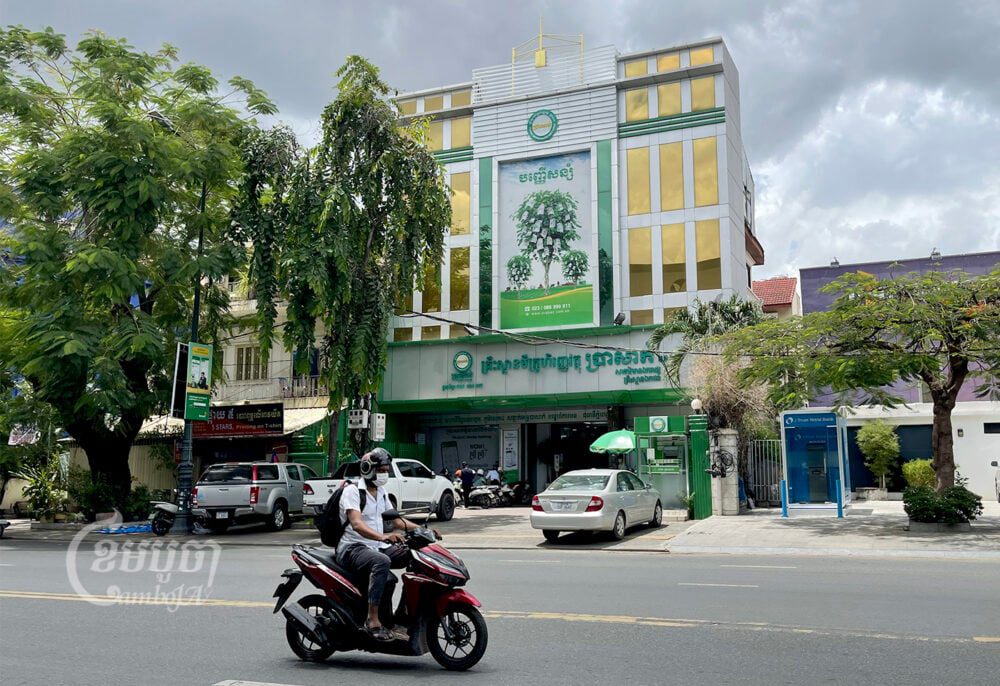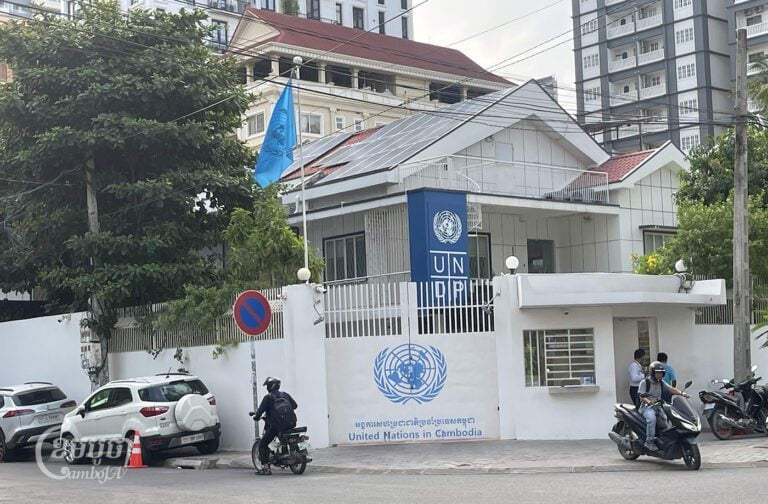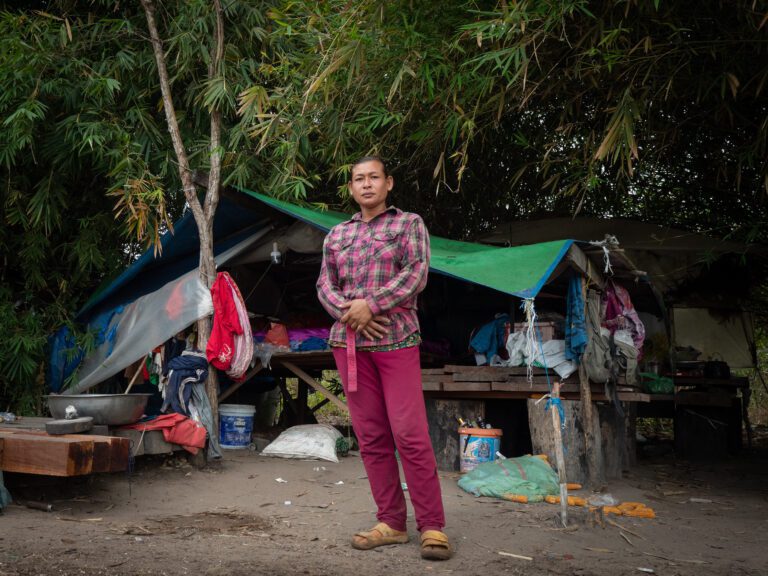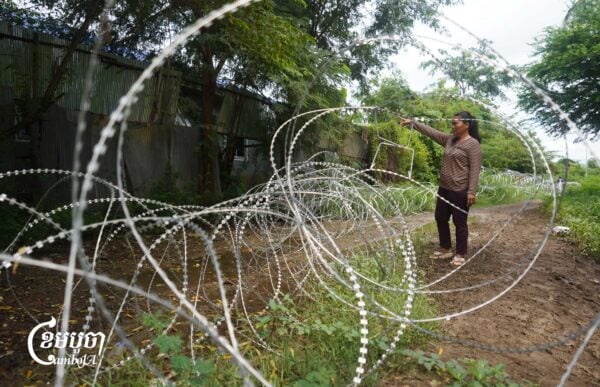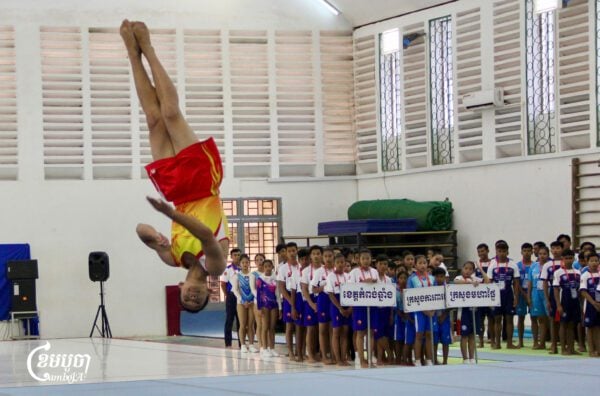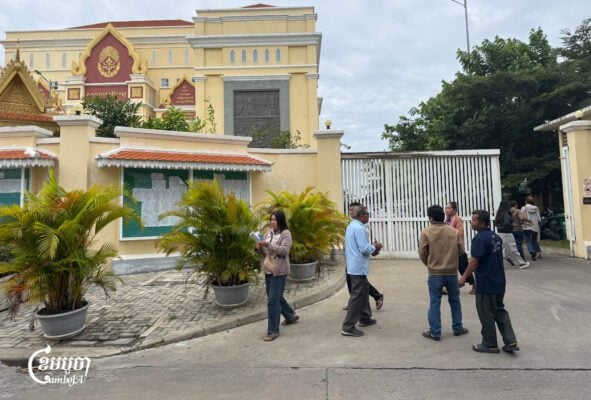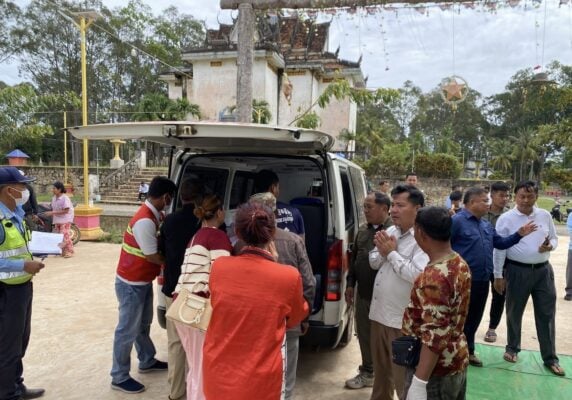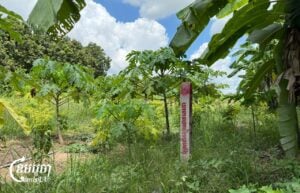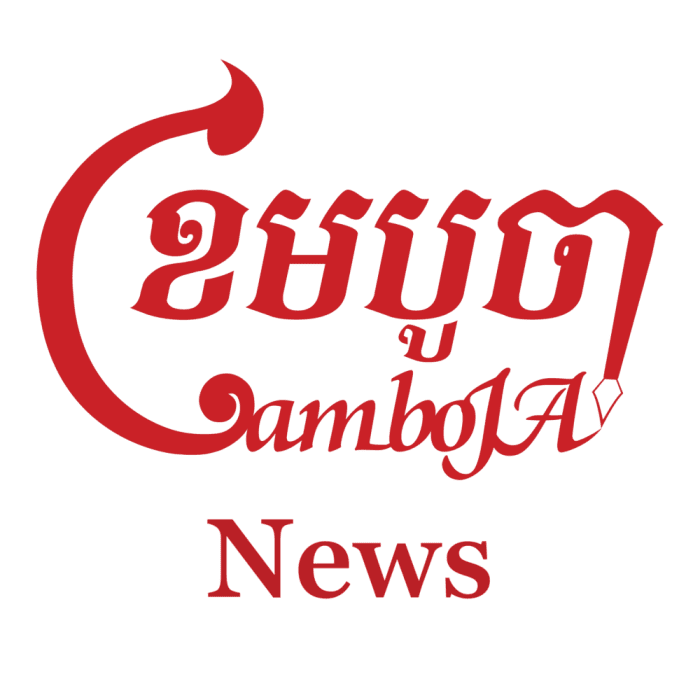A Dutch government watchdog group accepted a complaint last Friday alleging that social investor Oikocredit contributed to abuses in Cambodia’s microfinance sector.
The complaint was filed last December by three NGOs, alleging that Netherlands-based Oikocredit knew of the harms linked to Cambodia’s microfinance sector since 2017 but still continued to invest in Prasac, Amret and LOLC Cambodia microfinance institutions.
These institutions’ alleged abuses included “threats and intimidation, predatory lending practices, coerced sale of land including land owned by Indigenous Peoples, child labour, loss of home and livelihood, forced migration, food insecurity, and termination of children’s education,” the Dutch watchdog group noted in its assessment.
The complaint “merits further consideration” and the allegations are “plausible”, the watchdog group noted in its assessment.
The complaint, sent to the Netherlands’ National Contact Point for Responsible Business Conduct (NCP), a government-supported grievance system which reviews the activities of Dutch companies, argues that Oikocredit did not adhere to Organization for Economic Cooperation and Development (OECD) guidelines, global standards for business conduct.
The Dutch NCP will engage all parties in dialogue and if the issues cannot be resolved through mediation then the watchdog group “will examine the issues and provide recommendations” based on the OECD guidelines, the assessment states.
“Serious human rights violations in Cambodia’s microfinance sector have been escalating for almost a decade while foreign investors have turned a blind eye,” said Naly Pilorge, outreach director at Licadho, in a statement.
Prasac and Amret did not immediately respond to requests for comment.
LOLC Cambodia CEO Sok Voeun, who is also chairman of the Cambodia Microfinance Association (CMA), stated in a Telegram message that “we are not aware of the specific detail complaints.” He added that LOLC Cambodia follows “key principles of client protection” and complies with Cambodian law: “LOLC is a responsible institution who ensures to protect the benefits of the stakeholders such as borrowers, depositors, lenders, investors, shareholders, employees and public.”
Oikocredit told CamboJA in an emailed statement that it “supports” the complaint’s acceptance.
“Oikocredit remains engaged with the sector to overcome the challenges of Cambodian microfinance. It is only through perseverance and adaptation to change that our work can be of value to those who need it most,” Oikocredit said in an emailed statement.
Oikocredit stated that its own investigations in response to the complaint have found “no sign of misconduct by Oikocredit’s partners in Cambodia” but that they “look forward to receiving more specifics on the allegations”, according to the Dutch watchdog group’s assessment.
Oikocredit also said that it sees “evidence of the good microfinance does in improving lives and Oikocredit is conscious of the potential harm that can arise from malpractice in the sector” and that “any misconduct therefore is unacceptable to them,” the assessment also noted.
But Oikocredit had commissioned a 2017 study into the Cambodia microfinance sector which found “many examples of inappropriate practices in loan disbursement and collection” and that between 28 and 50% of Cambodian microfinance borrowers were “insolvent,” “critical,” or “at risk.” More than a quarter of borrowers owed monthly debt repayments exceeding their monthly incomes, the study found. It was never publicly released.
Licadho and Equitable Cambodia have published five reports on the microfinance sector, including a recent quantitative study, drawing attention to land sales and other harms linked to the industry’s practices. The German government also commissioned a quantitative study published last year which estimated there had been more than 165,000 microfinance debt-driven land sales between 2017 and 2022.
“Oikocredit and other investors claim to improve the lives of low-income communities,” Pilorge said. “So we expect them to actually remedy the problems faced by long-suffering borrowers.”
The complaint against Oikocredit calls for remediation, including diverting all profits from loans to Prasac, LOLC and Amret since 2017 into a debt relief fund for borrowers, publicly acknowledging harms caused by its investments, and halting investments “until and unless land titles held as collateral for microloans are returned to their owners.”
The complaint also calls for an “independent audit of how existing due diligence procedures and ESG scoring at Oikocredit failed to account for the severity and extent of harms occurring in Cambodia’s microfinance sector.”
Amret, Prasac and LOLC Cambodia are also among the six microlenders currently under investigation by the World Bank Group’s International Finance Corporation’s ombudsman for alleged abuses against Cambodian borrowers.
CMA spokesperson Kaing Tongngy declined to comment, but regarding the complaint against Oikocredit has previously told CamboJA: “We acknowledge that the sector is not perfect, but the sector has zero-tolerance against all unethical practices or abuses by any staff members.”
Equitable Cambodia’s Executive Director Eang Vuthy said he is pleased to see the complaint advancing.
“It is time for Oikocredit and other ‘social impact’ investors to stop delaying and start taking concrete measures to remedy the harms they have contributed to,” he said.
Update: This article has been updated on September 19 at 4:14 p.m. ICT to include a comment from LOLC Cambodia CEO Sok Voeun, who is also chairman of the Cambodia Microfinance Association.
Update: This article has been updated on September 20 at 3:53 p.m. ICT to include statements from Oikocredit provided after publication.


